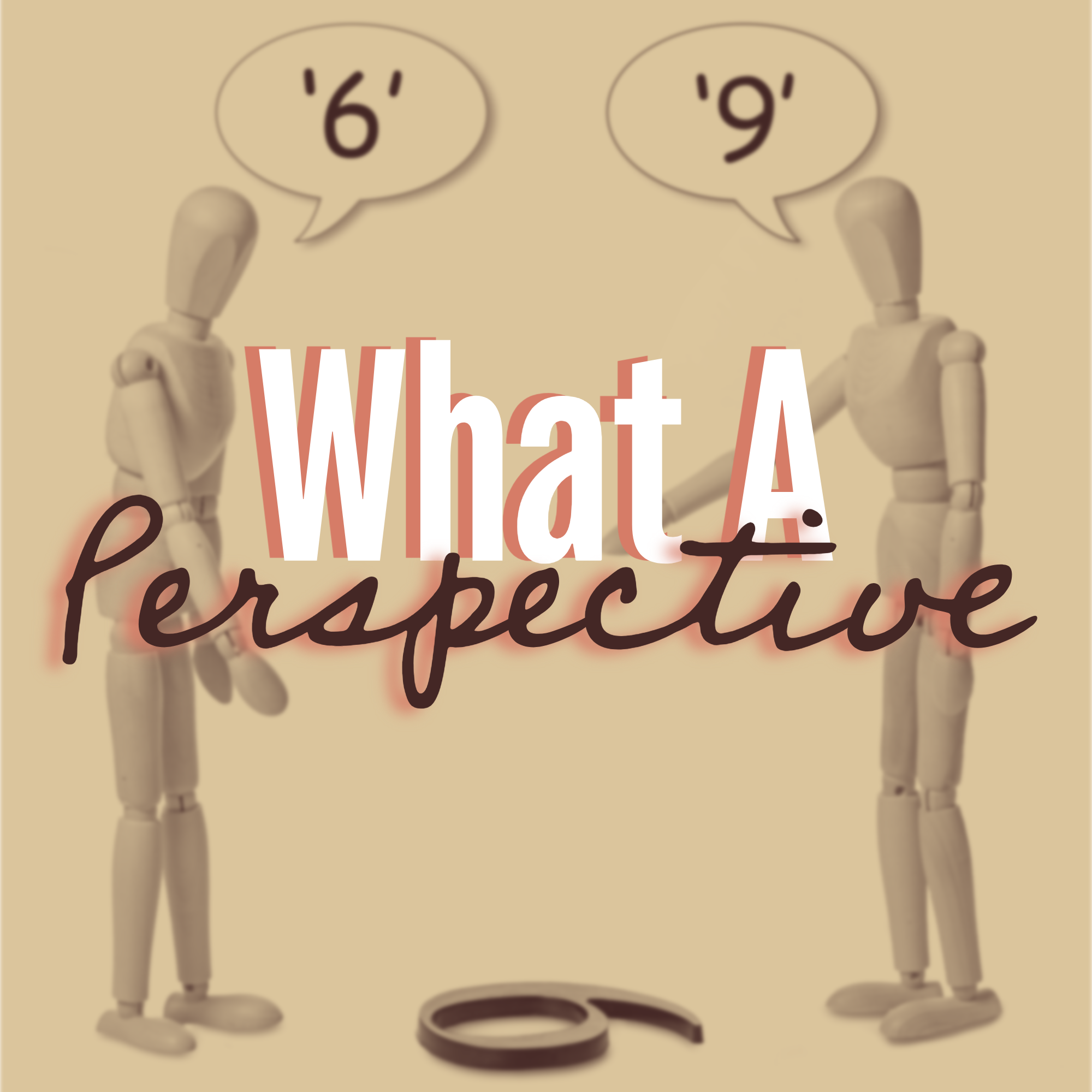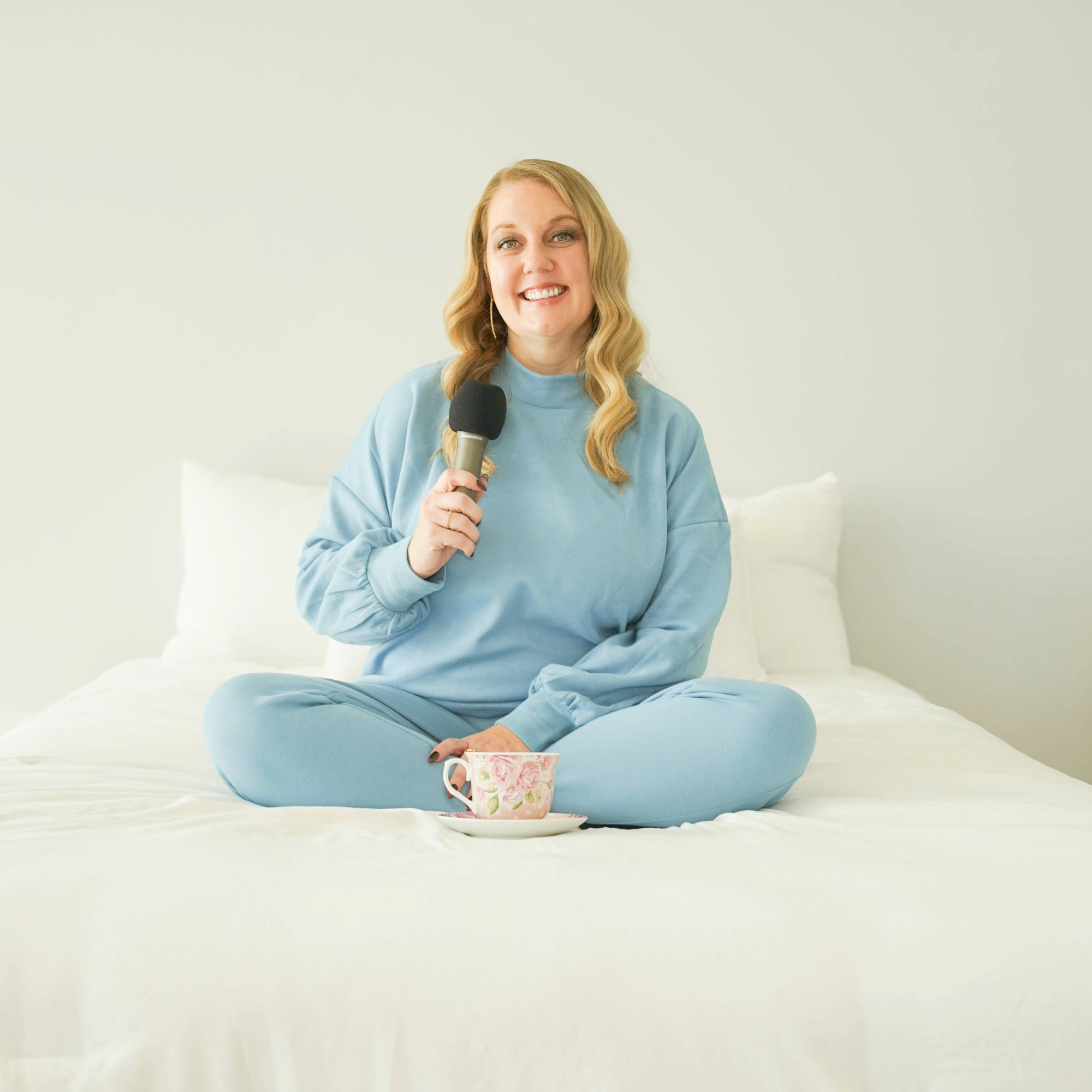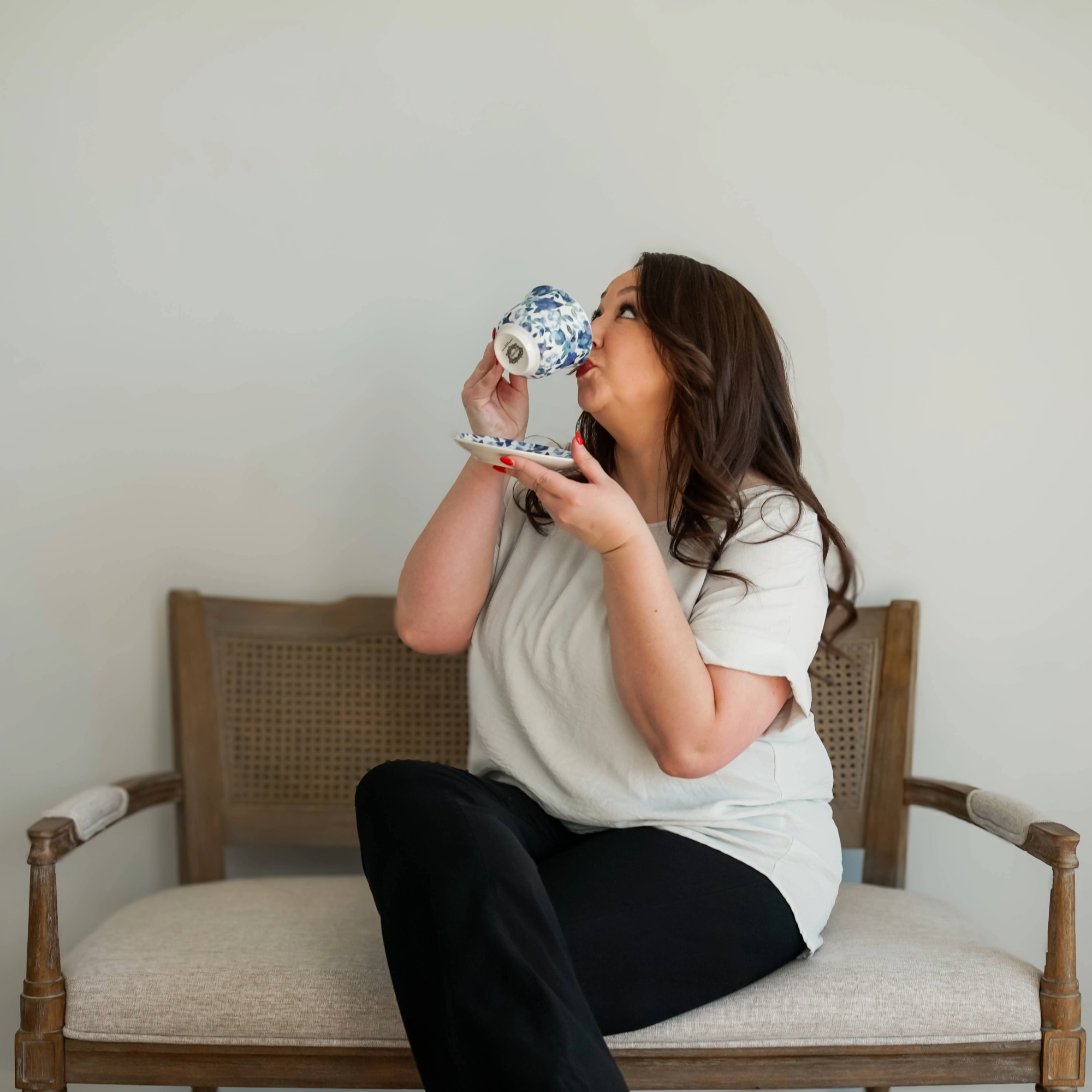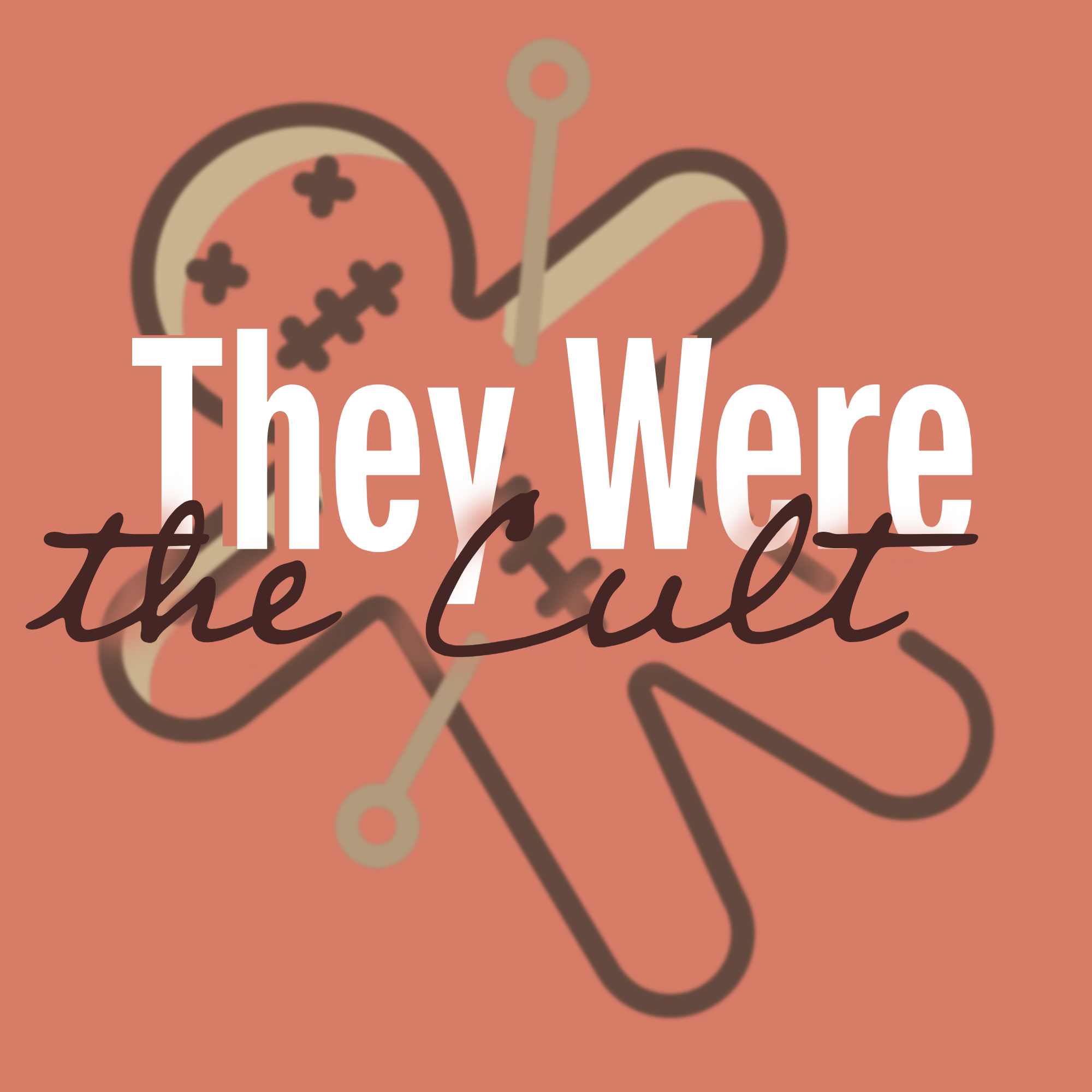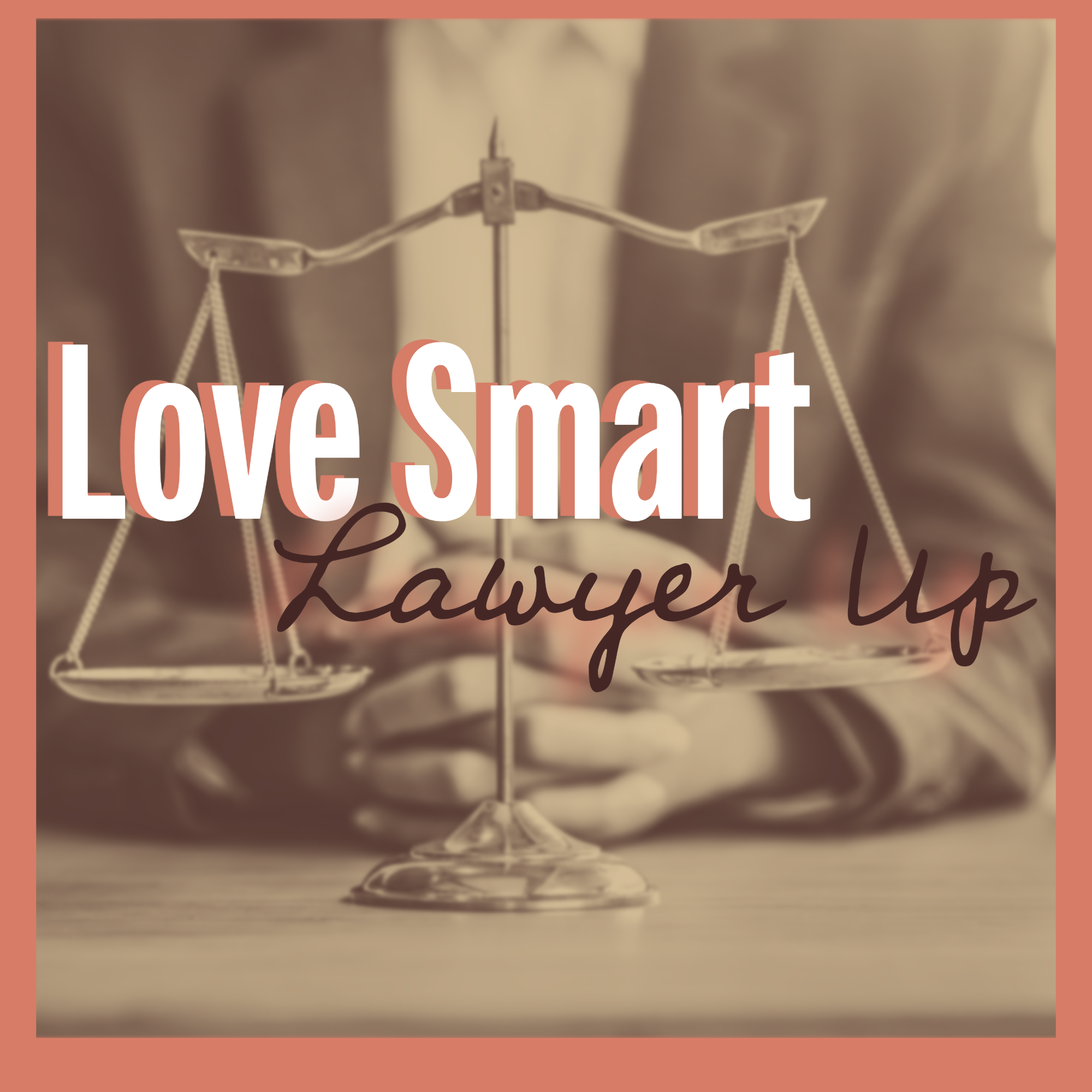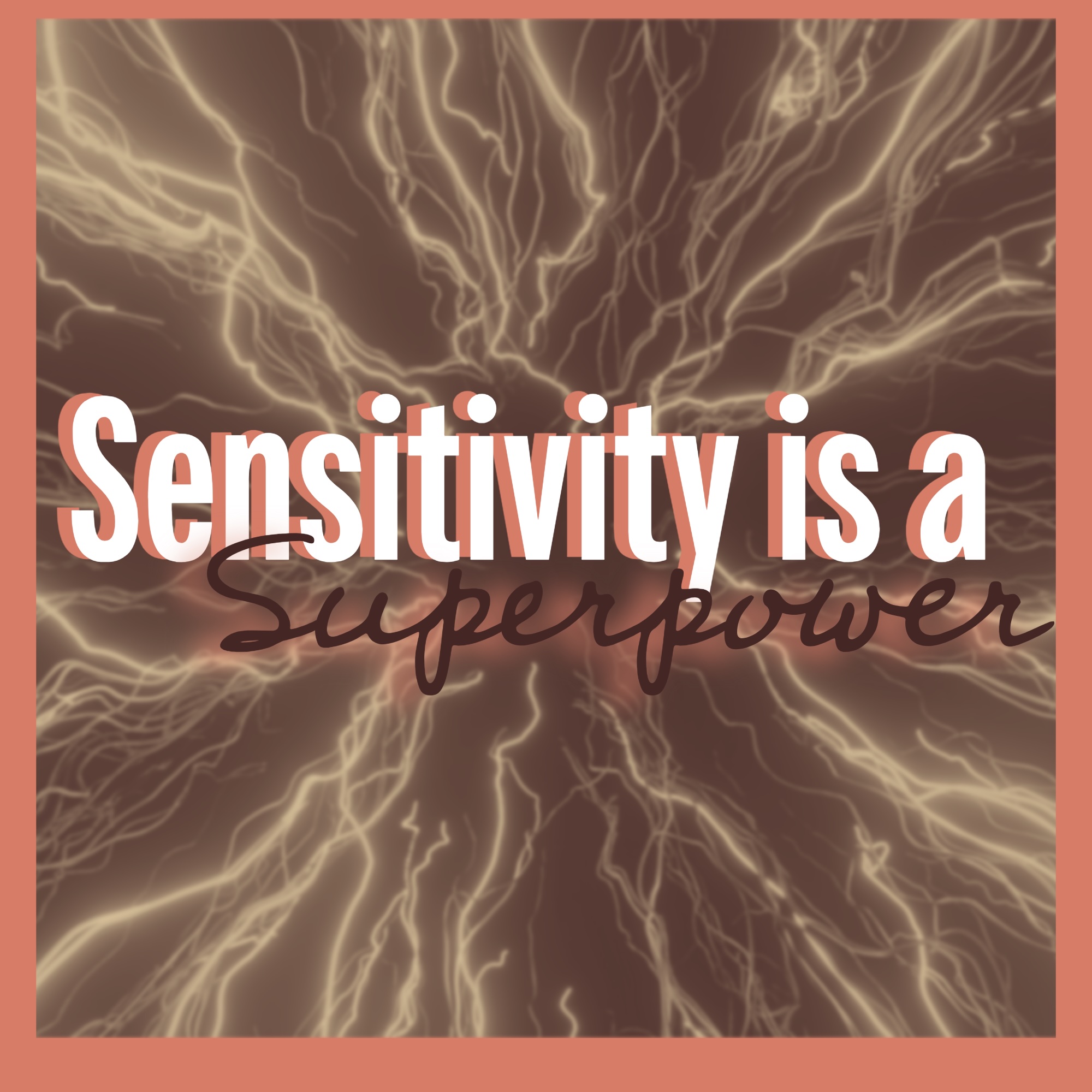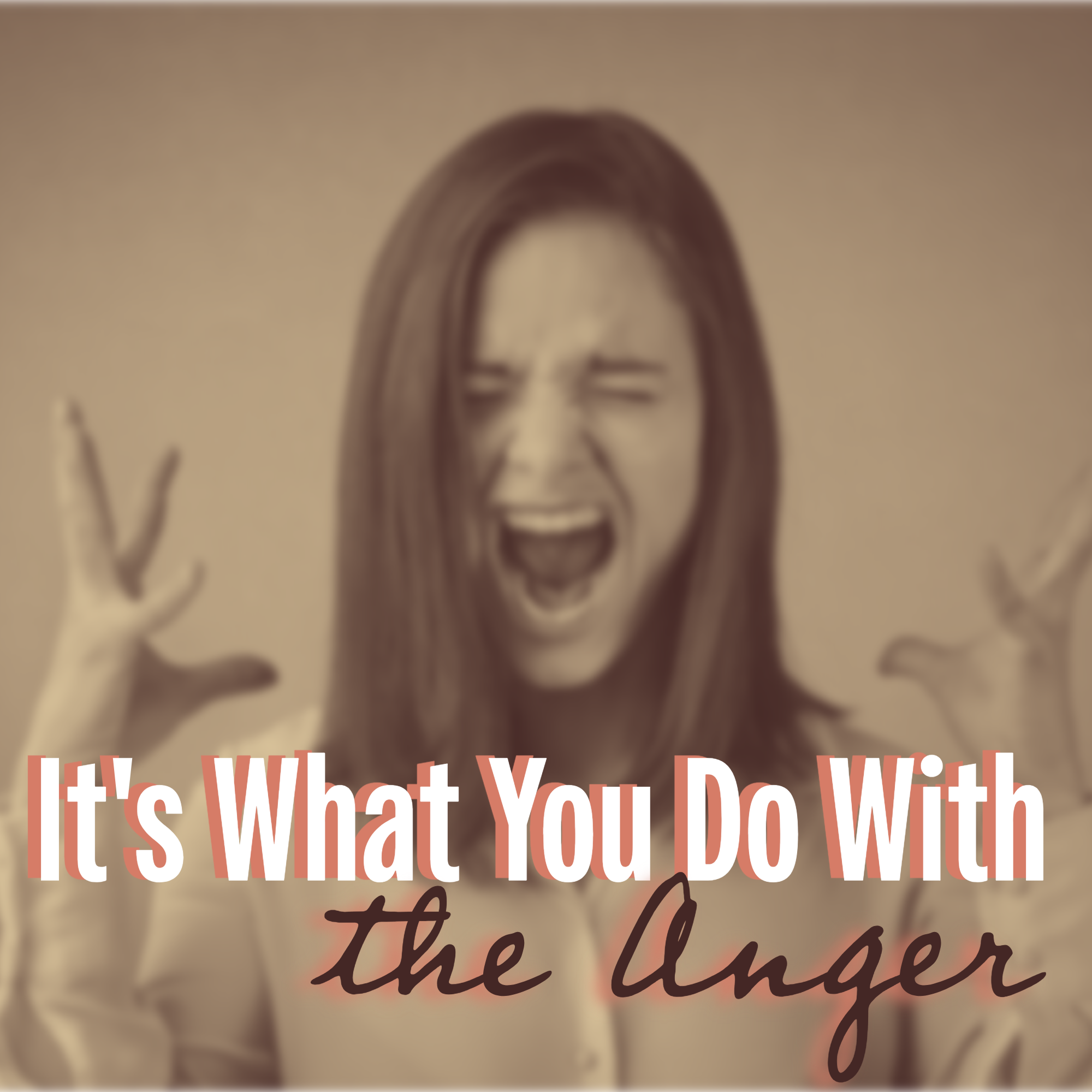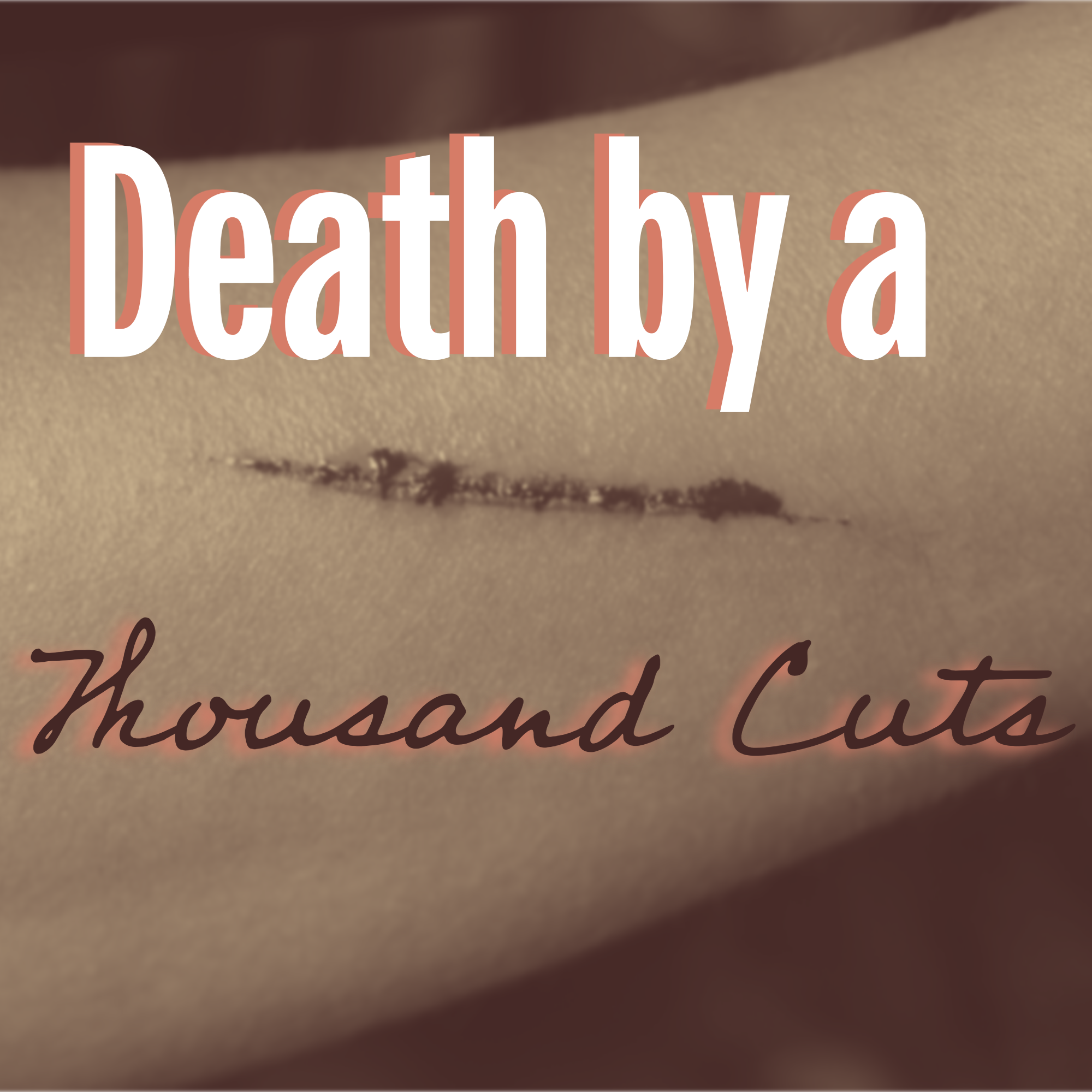In this episode, Bree and Lauren sit down with Katherine, a woman who not only found support through a church-based resource during her divorce but now helps other women navigate similar journeys. Katherine opens up about her experience, from grappling with church and mom guilt to finding healing and purpose. Tune in to hear her inspiring story and learn more about the resource available to women in the Huntsville area. If you or someone you know could benefit, reach out to Bree and Lauren to get connected. This is an episode you won’t want to miss.
View Full Transcript
Episode Transcript
[00:00:28] Bree: Welcome back to Spill the Tea HSV with Lauren and Bree. So Lauren, how's it going this week with dating, huh?
[00:00:34] Lauren: Well, it's about, you know, the same as always. But the, the story I have for this week, again, I'm not going out on dates with these people half the time.
[00:00:42] Bree: Oh God.
[00:00:42] Lauren: Because they're awful. But the, the bio for this Week was a 43 year old man who said just in his bio, like nothing else. He has like a couple pictures but he has no like prompts or anything else. It just like in the bio it just says I need you to make the bare minimum at least of like talking like bare minimum and talk to me. And he liked me. I didn't match with him. But in my head I'm thinking if you have to put that, that means that you probably aren't engaging. Women are talking to you, right. And asking a question and then you respond, but you don't actually continue and you're not asking questions back.
[00:01:14] Bree: So that's all he had on there.
[00:01:15] Lauren: That's it.
[00:01:16] Bree: That's like a man asking, what do you Breeng to the table?
[00:01:19] Lauren: Yeah, it's really weird.
[00:01:20] Bree: Nothing sets a fire underneath me more than that question, what do you Breeng to the table? What do you.
[00:01:24] Lauren: Well, more than you do.
[00:01:26] Bree: What do you Breeng to the table, buddy?
[00:01:27] Lauren: Yeah, yeah. So I was just, I don't know, I'm just tired of a lot of these guys are blaming women and saying like they don't talk. You know, I just wish you'd actually talk. Well, I know from experience from matching with some of these guys that they don't talk.
[00:01:42] Bree: No, they don't. You'll ask them a question, they'll answer it and they leave it at that.
[00:01:47] Lauren: Right?
[00:01:47] Bree: I'm not going to respond to that.
[00:01:49] Lauren: You're not continuing the conversation like at the bare minimum, ask a question back. It's not that hard.
[00:01:55] Bree: Yeah.
[00:01:55] Lauren: So you want to talk about bare minimum, sir, what are you doing to do the bare minimum?
[00:01:59] Bree: How are you supposed to get to know somebody if you're not asking questions?
[00:02:01] Lauren: They don't want to get to know us. No, that's the problem.
[00:02:05] Bree: Fully agree.
[00:02:06] Lauren: Well, what about you?
[00:02:07] Bree: Well, was in his 30s and engaged, but on a dating app, not like the friend section of it, but he was looking for friends to join them on the boat this summer.
[00:02:19] Lauren: So they like. He didn't even specify if they're like gonna be Polly or like whatever their case is. He just. So he's probably straight up just cheating.
[00:02:26] Bree: Probably.
[00:02:27] Lauren: Somebody needs to post that and dating the same guy.
[00:02:31] Bree: I mean, I'm not opposed to it.
[00:02:33] Lauren: I just. I'm so tired of these married men. And, like, there was another one on there that said, going through a divorce. And, sir, you are not divorced. Get off this app.
[00:02:40] Bree: And I knew him, I think.
[00:02:41] Lauren: Yeah, you did.
[00:02:42] Bree: Yep.
[00:02:43] Lauren: So I'm like, get off this app. Like, what?
The amount of married men.
[00:02:48] Bree: It's disgusting.
[00:02:49] Lauren: That are on these apps because you're still married until the divorce is final. I don't know why that's so hard to comprehend.
Like, it's hard for people.
Specifically men.
[00:03:02] Bree: Yeah.
[00:03:03] Lauren: So another dumpster fire week.
[00:03:06] Bree: Imagine that.
[00:03:07] Lauren: Shocking.
One day. One day you'll come on and you'll be like, oh, I met the love of my life.
[00:03:13] Bree: I thought I did that last time.
[00:03:15] Lauren: Me too.
[00:03:15] Bree: We saw how that went.
[00:03:17] Lauren: Just kidding.
[00:03:18] Bree: Joke's on us.
[00:03:19] Lauren: So we have a very special guest with us today.
We have Katherine. And why don't you tell us a little bit about yourself and what you.
[00:03:26] Katherine: Want to talk to us about today as I'm Katherine. Thank you so much for having me.
[00:03:31] Lauren: Yeah, thanks for coming on.
[00:03:33] Speaker A: So I would like to just talk about some of the things that go on when you're walking through divorce, specifically in the realm of the Christian culture. So my story involves divorce and also divorce with a young child. One of the things that really helped me was to have a resource that included a very emotionally mature church. This is something that I think is pretty rare.
[00:04:05] Lauren: Yes, I would agree with that.
[00:04:07] Speaker A: Unfortunately, it's rare, especially when, for me, when you are walking through a situation where this person that you married and that you at one point fully trusted with everything in your life, Your time, your money, your love, your heart. So you invested all these things, and then you can no longer trust them. So for me to. To be able to tell that to pastor or a network within the church, and for them, number one, to believe me, and then number two, to say, hey, that's really sad. That's not okay. And for me to be able to trust and be received in that way pretty quickly. So that was really helpful for me. So really just to give the voice that that's available and also acknowledge the depravity that in a lot of churches, it isn't.
[00:05:04] Lauren: Yeah, we. We've talked about this before with. With other people, specifically with Teresa Williams, who's the betrayal therapist who comes on here and has conversations with us about a church family. Like, for her. Her church family didn't.
They were not receptive to her divorce and. And she was not treated well. And I will say that for myself, I had left the church for like 19 years, and then I actually went back to the church because of everything that happened to me.
And so it actually brought me back to church. But I will say that so far at my church, I haven't met anybody who's judged me for being divorced, which has been nice because I know that my old church would have and did to other people and just know that it is, especially in the south, can be something that is. That happens. So I'm glad that you had that support and that. And you're saying it's a resource. So is it something that, like anybody could come to even if you don't go to the church?
[00:06:07] Speaker A: Yes. So there is an opportunity for.
Yeah. Women who are members of the church, women who are Christian or not Christian, essentially, just to be able to come and to be heard. So to be heard and then to have people to walk with you. That includes a pastor, but really that more includes women who have either been in that situation or women who are skilled in terms of coaching and walking through that in a more. More of a psycho psychology perspective.
[00:06:38] Lauren: Yeah. Is it like a weekly meeting? Like, what. How did that. How does the tempo go for that?
[00:06:44] Speaker A: So it's. It really is based on the person.
So really what it is is somebody says, hey, I am considering leaving a marriage or I want to stay, but I don't know how to improve it, or I feel scared in my house, or I have walked through divorce and now I don't know what to do with my life. So anywhere along the spectrum. And really just saying, hey, I feel alone in this and I don't know what to do. And so a resource to be like, hey, you don't have to be alone. And whether you just want a friend to sit with you, a friend to listen. So lots of listening so that you can pour out everything that you need to pour out without judgment, without shame.
And from that starting point to be able to transition to, hey, like, I really think this is outside of my scope, having a collection of. Let's refer you to counseling. Here are some options. We're not going to tell you exactly where to go or, you know, here are these other programs. So just a. A starting point. So there's. It's not structured in terms of weekly meeting, monthly meeting. It's. You have a contact and you can call that contact, you can text that contact, you can meet with them. It is as if that committee is kind of on call to walk through Folks that are in a position where they don't need to be alone, so.
[00:08:08] Bree: Pretty much it helps just give them a way to get on a better path than compared to what they're currently in or, you know, trying to get out of. And I think that's really good because we've touched on this before. You know, feeling alone in certain situations, it's very hard. You know, I've been there myself, and it's not easy when you think you're the only person who has gone through something like that, but you're not. And it. What it boils down to is that there's a stigma, especially around divorce. You know, people, you know, you feel ashamed of it at first.
I've been married three times, and my third one, I was extremely ashamed. It was not something that I wanted, but it was something that I was forced to walk through. And so the shame and pretty much a guilt that came with that, you know, it was. It weighed on me pretty heavily. And so that's. It's a wonderful resource to have to let you know, other women know that they're not alone in that walk of life.
[00:08:58] Lauren: Yeah, I think too, it's. You're scared to ask for help a lot as women.
[00:09:03] Speaker A: I agree 100%.
[00:09:04] Lauren: Yeah. And I think it's because we're constantly being told, like, you can handle it, just handle it. Like you're a mom, you know, whatever the case is, like for women, we're always just expected to handle everything.
Just pull yourself up by your bootstraps and handle it. And you're not the only one that's been through this. Like, that's something that I had some people say to me, like whenever they find out that my husband had affairs is, well, you're not the only one.
And I'm like, yeah, but he was the love of my life. I thought, like, I was deeply in love with this man. And I got completely destroyed to the point that I was suicidal. And that's honestly part of the reason why I went back to church myself too, is because I was so. Once I got past like that stage of it, I was so angry that I was like, I need more than just therapy. I need. I needed something spiritually to get me back on that. And thankfully I walked into a church that, that has done that for me. But I think having the one on one support or having like meeting people that.
Because a lot of women don't, sometimes they're isolated and they don't have friends. Like their husbands have isolated them.
[00:10:11] Speaker A: Correct.
[00:10:12] Lauren: And that's a huge thing because then if they're being abused, whether it's emotionally, physically, you know, financially, because they're stay at home moms and they may not have an income and then they're too scared to leave because then who's going to pay for their kids stuff?
So I think that that's great that there's a resource for that. So we're not going to name that resource out loud here. But if you do need help and you're in the Huntsville area, you can reach out to Bree and I and we will get you connected with that contact.
[00:10:43] Speaker A: Yes. Thank you.
[00:10:45] Bree: So you all provide someone a contact for the individual. Are y' all associated with any, like, women's shelters or anything of that nature?
[00:10:54] Speaker A: So we are not directly affiliated.
And I will say my involvement is that I have had support from this group and then also have been able to transition to a supporter. So I think that's really encouraging for me because you're able to receive that help and then at the same time, so it helps you feel less alone and then also gives you a direction like, hey, these things have happened. And that's a chapter of my story. But that's not the whole story. Right, right. And it is good to honor that and to give yourself grace at whatever point and then also feel hopeful that that's not the end. We have several different avenues just from around the city and have been in contact with either the police department with. If we're in a situation where we're talking with someone and we need to make a decision involving not just us at that time, how to do that. So really more of a. Like, we're not counselors or law enforcement or like all ourselves. We're just. We're just normal people there for support. Right? We're there. And then to direct as best as we can with the knowledge that we can.
[00:12:13] Lauren: Well, and that sounds like a great resource in that a lot of people are scared to just go straight to a shelter or go to the cops. Professional trust, tops.
[00:12:20] Speaker A: Yes.
[00:12:22] Lauren: So it sounds like it's a great first step to like, kind of learn what are my options? Like, you guys know what the options are. So you can say, well, here's some options for you. Here's some things you can do. So at least, like, even if they're just considering it, wanting to know, like, what even is out there for me, because you can do research and you can, and you can search it, but I feel like a lot of times when you're doing, like, if you're just Google searching it. Some shelters are going to come up and police. And then you're like, well, what if I just need to talk to somebody? Okay, we'll call the suicide hotline. Well, or get a therapist. Well, I can't afford that and I don't want to call the suicide heartline. I want to talk to somebody in person.
So this sounds like a great, A great avenue. And a lot of people with church are standoffish because they don't want to be preached at. So can you talk about that? Like, I mean, I'm guessing you guys are listening and everything, but you're not like, preaching at them, you're not sure. Trying to force religion onto them, if you will, because that's, you know, something that some people are also scared of.
[00:13:19] Speaker A: Absolutely. I will say that I was scared of that.
I did not previously have a very good history of a healthy community, one that would be loving without judging, but at the same time, like, be able to say, hey, these actions are harming you. You know what I mean? To have that balance and to truly love one another, even when it's very messy and very hard to do that. So for me, there are many things that helped me, but one of them was I was in a position where I had felt very, very hurt, very afraid, afraid of what to do in terms of my marriage with my child.
Just really didn't know. Very, very dysregulated and afraid.
So I. One of the very first meetings within this. This group was really hard to tell my story, super hard because I didn't have that.
I didn't know what it was like to be able to. To say that to someone I don't really know and it be received with such care and such comfort. So for me to be able to do that in and of itself was really helpful to unburden in that way. But one of the things that was initially said to me was it's okay to be angry about this.
And that took a huge weight off because. Because I felt like I can't be angry. Like, I have to be. God doesn't want me to be angry. And, you know, it was bad that my husband did this, but, you know, I need to be the submissive wife and I need to. I don't need to really show. I don't really need to be angry. And then it. It was supported. It was said, you know, several people talked with me like, hey, Jesus turned tables over because he was mad and he said it should not be this way.
And he got mad about that.
And I just felt like, okay, I can be angry.
They're telling me it's okay, you know, because I had things bottled up for so long.
So that was such. Such a relief. And then also, these people believed me. They believed what I said. And I think that kind of goes back to this person who I loved and this. This family that I loved. Right. That associated family.
I had lost that trust. And so to be able to go and to share that, that deepest part, and to have someone say, I believe you, and what has happened is very serious.
And we're here for you. We're here for you. If you decide to. To do X, Y or Z, that's awesome.
[00:16:22] Bree: A lot of them.
And like Lauren said, especially in the South, I've. I've was born and raised in the south my whole life. And so I've been to many different churches, and there's one specifically that I've gone to. I'm not going to name it on here, but it sounds, you know, much like the one that you're describing. Whereas all the others, you are shamed for either, you know, decisions you've made in the past or just anything that you shouldn't be judged for. Because in the south, they say if you're a Christian, you know, you treat everybody the way Jesus treats you. Well, they don't do that. And so to have a place to go where you're not judged and you're not guilted into feeling ashamed for anything is really nice.
[00:17:07] Lauren: And I think the believing part is huge, because we've talked about that before. Some on here, too, is that a lot of women are not believed on all realms of it, whether it's someone who was raped by their husband, because they say, well, it's your husband. He can't rape you, and that's not true.
Or someone who has proof that there was an affair, but people still just are like, I don't believe you, or what it. Or then turn it around even worse. What did you do to cause it? Yeah, that's always a fun one.
And then also, just like this, I. One of the things that I personally have talked about before is that I wish somebody would have told me because he had this pattern and people knew and no one told me.
[00:17:53] Speaker A: And.
[00:17:54] Lauren: And then people knew he was on the apps while we were together, and no one told me. And I just.
And a lot of people are like, well, it's not my business. And I'm like, no, like, we should be protecting women.
And I wish I could have made a fully informed decision for myself on whether or not to stay with this man or even marry him in the first place.
And had somebody come to me two years ago and said, hey, your fiance is on apps, then I could have walked away and saved myself emotional and financial trauma. Yeah.
And so I wish women would just listen to women, especially when you come with receipts. We need to start listening to each other. And a lot of times it's easier to talk to other women. But then sometimes we're also the hardest critics.
So that's, you know, we got it. We need to do better for each other, for sure.
[00:18:46] Speaker A: And I think that kind of goes back to really comfort and care for someone.
Well, is to be there and to be able to say without judgment, but also to say, hey, you are worth more than what you are allowing.
And to say that in a way that is loving and kind. Because sometimes, myself included, you're such in a rabbit hole that you don't. You don't see that anymore what your value is.
So for other women to support and to say and to speak up and be like, hey, this isn't okay, or, hey, this is like, let's celebrate that. And to be able to come together, it's just a beautiful thing because when you remove that isolation, you usually remove fear, you usually remove shame, rage.
Again, it's okay to be angry, but it's just a much healthier. Like, you can have your emotions, you can express how you feel and then keep that in an appropriate balance.
[00:19:55] Lauren: As a mother, because we're not mothers, so. So as a mother, how has this, like, helped you in that specific way? So obviously it helped you as a woman and your divorce and everything, but, like, as a mom, that's a big thing, is a lot of people go through this with, like, you know, their kids, and that's the. One of the scariest things is, like, what's going to happen to my child? How's this going to affect my child? So can you talk on that? Because I'm sure a lot of our listeners have kids that have gone through something like this.
[00:20:23] Speaker A: Sure. So for me personally, one of the.
The things that made it the hardest for me to determine if I should continue in my marriage or step away, the initial one was faith. So, yeah, would God still love me? Would I be supported? Is this okay if I get divorced? Which the church helped with tremendously. Again, emotionally healthy. Second thing was my child. So I had in my mind, which I think is a valid thing to think, like, how would separating affect my child? I had in my mind this will be a broken family. This will be very devastating.
And in many, many, many ways, it is. It is hard. It is not.
Again, it's not how it should be. And it's easy and perfectly normal to feel sad and angry about that. But I was able to, again, with a very loving, supportive community. There were people that said, hey, if you are only staying in your marriage for your child's sake, it will never be enough and your child will ultimately suffer. So that reframed it for me. No one told me what to do, but just saying, hey, keep this in mind. Like, if you're not invested with your partner, that is going to show day in and day out, and your child is going to be directly impacted by that.
[00:21:56] Bree: Exactly. And when you think of divorce, my last marriage, there were two children involved. I was their stepmother. And so seeing those kids, they. They go through it as well, they process it as well. And in the end, you have to think, well, what I am currently going through, how I am being treated and how this relationship is going, is that something that I want them to look at as a role model? You know, do they want to see this relationship and think that it's normal when it's not? Because you would never want to see your child be in that same position and essentially put up with some of the things that you're putting up with. And granted, they are not my biological children, but, you know, obviously want the best for them and to know what a healthy relationship and marriage looks like.
[00:22:42] Lauren: Yeah, exactly. And that's actually one of the last conversations before I divorced Dick was, would you want your daughter in a relationship with someone like you? Like, I straight up asked him that, and he said, yeah, like, of course. And I said, so you think you're a good husband? And he said, yes, absolutely.
And this is before I knew about the 20 plus other people. @ the time, I only knew about one that he had an affair with, but he was, like, emotionally and physically cheating on me for years.
So he thought having dating apps and talking to women wasn't cheating.
[00:23:19] Speaker A: What a perspective.
[00:23:20] Lauren: Yeah, it varies.
[00:23:22] Speaker A: So interesting.
[00:23:24] Lauren: Yeah, but that's one of the things I asked him is I was like, would you want your daughter with someone like you? And the fact that he said yes, and now that I know the full truth and scope of everything he did, I'm like, surely not. Like, surely you don't want your daughter to be with someone who would hurt her like you hurt me.
And I just. I'm. I'm glad that I didn't stay because it would have been very toxic and I would have never trusted him and it just would have been very toxic for her. And again, my step, she was my stepdaughter, but it would have been very, very toxic for her to be around that kind of environment had I gone with the whole, oh, I married him, so I have to stay thing. And that's the thing that a lot of the, like, older churches and stuff get ingrained in us is, well, you married him, so you have to stay through all his faults. You said for better, for worse. Well, yeah, but sometimes worse is, is so bad that we can't.
[00:24:21] Speaker A: Right.
[00:24:22] Lauren: So. And I think it's good that there's a, you know, that you were able to get that help and that there's a place for others to go get that help as well. Because the kids ultimately are what, what's important. Like this is the next generation that's going to be growing up here, and we, we should want it to be better for them and so that they don't have to deal with the toxicity that we're having to deal with.
[00:24:43] Speaker A: I think one of the things with women is, like you said, we, we. We are told we need to be X, Y and Z things, right? We need to work outside the home or we need to work inside the home. We need to be a good mother, a good friend, a good daughter, a good worker, all of these things.
And sometimes I think as a parent, part of that is sacrificially loving your children. But at the same time, it is healthiest to maintain your own identity and not completely. Same thing with marriage or relationships. Don't give, give what you can, but you are you.
And for not to sacrifice that piece because you are of equal importance to who you are in, in relationship with, to your children. You matter the exact same amount. And I struggled with, you know, would it be bad for me as a, as a parent, would it be selfish for me to invest more in myself? And I've learned no, it's not.
So for me to go and get help, whether that be counseling, whether that be what, whatever it is, for me, particularly it is community to have that, because I'm not going to be able to pour out anything if I don't pour it in to myself. And if we don't allow people to pour that into us, because that is the investment that our children need, and we can't do that if we're sucked dry.
[00:26:11] Bree: No, if you don't take care of yourself, then you're not going to be able to Take care of them. And it goes back to the whole role model situation where they're looking at you thinking, okay, well, I need to drain myself and take care of everybody else instead of, you know, taking care of myself so I can help others.
That's very important.
[00:26:28] Speaker A: And that was a big thing for me, too.
One of the things that confirmed my decision to move with separation was I don't want my child to think that this is what love looks like.
Kind of like what you said, right?
[00:26:45] Bree: Yeah, I completely agree with that.
[00:26:47] Speaker A: Because it isn't. And if it isn't, what are we doing? You know? And it's different. It is different because I'm not gonna sit here and advocate for divorce or advocate for, you know, every relationship is different.
But to be able to.
To know what is a bad season and to know what this is not something that can be reconciled to know that difference.
[00:27:15] Bree: And I've seen a lot lately, just like in some of, like, the girl groups and stuff, where they are posting you anonymous questions, well, do you think this is right or this is wrong or should I put up with this? And in my mind, if you are already questioning that to that extent, where you're, you know, asking others and, you know, strangers at that, then something's wrong. You know, you need to go with your gut. You need to trust your instincts. And a lot of times, you know, we don't listen to the other people around us, like our friends and stuff and even some of our family. We think that, oh, you know, I've got a full, you know, handle on this. It's under, you know, control, but we have our blinders on.
We don't pay attention to the red flags that we should have paid attention to, and we should have listened to others. So having that community and that support is very important.
[00:28:04] Lauren: It sounds like from what you went through and. Or have gone through. And you use this as a way to find your purpose. Like, this is something you've added to yourself to be able to help others and kind of turn something really negative into a positive, which I think is a great thing and something that I think we've tried to do. It's. It's hard to take something that's so painful and especially when you're still feeling it, you know, when you're. When you're still in it and you're still feeling it and make it into something, you know, positive. And, like, we'll joke around about these guys in these bios and stuff, but, like, it really is hard when you're still Constantly dealing with it and will be for probably years having to see it or, you know, God forbid, this town is not that big. So, like, he pops up on dating apps.
[00:28:53] Speaker A: Oh, really?
Again, what a perspective.
[00:28:59] Lauren: So it's like one of those things where it's just like, you know, am I ever gonna not have to constantly have him, like, in my orbit? And I think that having a podcast to be able to talk about the pain, knowing you're not alone, because, I mean, sometimes you just feel like crazy, and you need people to be able to talk to. And, I mean, even just talking to people on the podcast that we've had on the podcast has been great because you do come with actually good perspectives and, like, options and things.
[00:29:30] Speaker A: I think sometimes, I think when people are in a position of struggle and they. They don't necessarily want to come forward because they think they'll be judged or that this person. Oh, they're in such a better place of life than me, right? So. And so they feel inadequate or less than. But when I have shared my story, I mean, I still cry. It's. It's still pain. Even if you're not walking submerged in it in that particular day, it's still that chapter of your story.
So there is pain in revisiting it, But I think that there is also great power in that because you can, again, honor that part of you and be able to revisit that without shame and to learn from that and to, at the same time, like, hold that grief, but then at the same time, hold that joy. That man, like, that.
That was a part of my life, and it is a part of my life, and it's not today.
And what's today gonna Breeng? And approaching that with a positive instead of, oh, goodness, what's today gonna Breeng? You know, like. Like being like, I can. What is. Like.
Like, I have so much time and energy now. What do I want to do? How do I want to. So it's. It's just a great.
It's just been really freeing for me.
[00:30:52] Lauren: So that's amazing. And I love that idea of, like, trying to make it into something because I'm. I'm horribly guilty of that. It is so hard to make something positive out of something so. So painful. And it's. It's a nice thing to think about. It's like, okay, instead of like, oh, God, what's today gonna happen? Like, what's gonna happen today? Be like, you know, what. What possibilities are available out there? What. What can God Breeng to me today? What can, you know, I do for myself today. And that's a good way to look at it. I think it is.
[00:31:28] Bree: And this sort of ties into. I was. When we were on our way over here, I was driving down the road and so I only live a couple of miles from my most recent ex husband and that, you know, he had two kids. And so I see them like on the road a good bit. And so at first that was very, very hard for me to see them because it's like that's the life that I thought I was going to live forever. Like, that's what I had envisioned, you know, I would be with them forever. And so on the way over here, I was thinking, you know, I questioned God so, so much in the beginning, like, why would you put me through this again? Like, I have already been through so much. This was supposed to be my forever. And I was very angry in the beginning. And then I started thinking today, you know, had I not been put in the situation that I was in, had everything not happened, it would have continued to cycle. And I think by the time that everything was said and done, that is exactly where I needed to be to know my worth and to know what I would and would not allow.
And as far as how I needed to be treated, you know, sometimes it takes a few times. It takes a few times. But I think that was like the reason that I had to go through everything, because had I not then I wouldn't as be as strong as I am today.
[00:32:43] Speaker A: Yeah, I definitely understand you saying this is the life that I thought probably most people say that after a divorce or a separation. Right. You thought this was how your life was going to look for the rest of your life.
And so I remember in separating and divorcing, like it was a 180, like it was just a. You kind of pack up this one, literally or figuratively, and then you start this one. But then also. So, like, maybe these physical or tangible things change, like where you live or you, you know, who your network of people are, your support system, maybe those things change.
But you've still got all these bags that you brought with you, literal and figurative bags that you brought with you to this new place.
So it's.
That's really hard.
[00:33:33] Bree: It is. And unpacking them, because, you know, you don't unpack it, you know, all at once. Some people do, some people don't. I don't. It takes a little while.
[00:33:40] Speaker A: Exactly.
[00:33:41] Bree: And so unpacking that and going through all of it and processing it, you know, you can hope that it's going to be an overnight process, but it's not.
[00:33:49] Speaker A: Right.
[00:33:49] Bree: So we're always healing from something.
[00:33:51] Speaker A: Sure.
[00:33:51] Lauren: Oh, absolutely. I mean, for me, I mean, it's. I always. I keep joking that, like, I don't even want to Breeng the couch or the mattress. I call it bad juju.
[00:34:01] Bree: We're burning it.
[00:34:02] Lauren: Yeah. And I was like, I don't want to Breeng the couch in the mattress because I don't know how many women he had over here on it. And I'm like, I'm not Breenging this into my new space. Space. My, like, healed space. And so I think. But then it's hard because financially, he left me in a massive amount of debt. And so then I'm like, okay, so now I have a massive amount of debt, but I need a new couch, and that's expensive. And so you're, like, weighing your options, like, do I just deal with the bad juju? But then it's like, no, because that's gonna taint my new place.
So, you know, I'll figure something out. Whether it's. I get a second job, whatever the case is. Like, I'll have to figure something out, because you. You have to take care of your mental space. And I think for me, when I get to move into my new spot and not have to have anything that is tainted by him and the things that he did will be a positive thing for me. So, you know, if you are moving into a new space, if there's something or, like, a tangible item that, like, is painful for you, don't take it with you. Leave it behind, and leave it in the old space, because it's. You don't want to have to look at something every single day and have a reminder of it, Especially in something like a betrayal situation where you're like, no, that's. And my therapist even told me, she said, I recommend to pretty much anybody who gets out of a serious relationship, one of the first things you should do is get a new mattress, cleanse it. Cleanse that life. And that way you can move on and be free of that. Because then those memories of that. You're still gonna have the memories. But when you go to bed every night, it's not your bed like, y' all's bed together.
[00:35:34] Speaker A: I think what sometimes people may not see from an outside perspective is it's a million little decisions like that, like, do I get a new bed? Or where is my child going to go to school? Or. And that's. That's a big thing. That's not a Little thing. So. And it's. Or it could be like, we always had this dinner on Sundays, or we, you know, it's all kinds of things. And.
And for me, it was a. Again, like, wrapped up in identity. Right? So very closely knit in relationship with this person. And it's special, even if it's bad. So this person knows a lot about you, even if it's unhealthy. And so when you remove that, you're like, oh, well, he likes this.
So I'm going to do that. I had to retrain myself. Like, he's not here.
[00:36:25] Lauren: So.
[00:36:26] Speaker A: So what do I want? You know, free. I'm just like, okay, well. And so everything to me was a relearning of myself and learning what it was like to be happy and content and have joy and peace in that, which is so healing and so invaluable.
And so I think when you have a resource like the one that God just brought to me, I wasn't even really asking for it. He just dumped it with me.
Then your eyes are just opened, like, to, oh, wow, this is how I should live. And not just, this is how I should live, doing whatever I want all the time.
But God loves me so much that he's like, hey, Katherine, and I really want you to have a life that is full, that you live in abundance, that you know every day you are loved and cared for, and you get to walk outside knowing that with confidence.
And the maker of the universe wants that for you and me. Right. Which is incredible. Right?
[00:37:32] Bree: Absolutely.
[00:37:32] Lauren: Well, thank you so much, Katherine, for coming on and sharing this. And again, if this sounds like something that you need, if you need a resource where you can have some people to listen to you and just. You don't know where to even start, reach out to Bree and I and we will get you in contact with Katherine. And that way you can get some support that you need. And we hope that you do. And we will. See you next time.
[00:37:55] Bree: See you next week.
